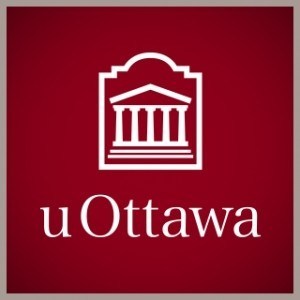Photos of university / #uottawa
The Bachelor of Arts in Anthropology at the University of Ottawa offers students a comprehensive and engaging exploration of human societies, cultures, and biological aspects across time and space. This interdisciplinary program is designed to provide a solid foundation in the four main subfields of anthropology: cultural anthropology, archaeology, biological anthropology, and linguistic anthropology. Students will develop critical thinking, research, and analytical skills through a diverse curriculum that includes lectures, seminars, fieldwork, and laboratory exercises. The program emphasizes understanding the diversity of human experiences and the factors that shape societies, both past and present, fostering a nuanced appreciation of cultural differences and commonalities. With a strong emphasis on research methods and practical experience, students are encouraged to participate in field projects, internships, and study abroad opportunities to enhance their learning and prepare for careers in archaeology, museum work, international development, and academic research. The program also prioritizes the development of communication skills, enabling graduates to effectively share their findings and insights. Faculty members are active researchers in numerous areas of anthropology, providing students with access to cutting-edge knowledge and mentorship. Upon graduation, students will possess a broad understanding of human diversity and the ability to analyze complex social and biological issues, making them well-equipped for a variety of roles in academia, government, and non-profit sectors. The Bachelor of Arts in Anthropology at the University of Ottawa is an ideal choice for students passionate about understanding the human condition and eager to make meaningful contributions to knowledge about our collective past and present.
- COMPARATIVE THEORETICAL APPROACHES IN ANTHROPOLOGY: THE FRENCH AND ANGLO-AMERICAN TRADITIONS
- RESEARCH METHODOLOGY IN ANTHROPOLOGY
- CO-OP WORK TERM I
- CO-OP WORK TERM II
- SELECTED TOPICS IN POLITICAL ANTHROPOLOGY AND SOCIO-CULTURAL CHANGE
- SOCIAL AND CULTURAL ANTHROPOLOGY: FUNDAMENTAL ISSUES
- THE ‘CULTURE’ QUESTION IN ANTHROPOLOGY
- SELECTED TOPICS IN CONTEMPORARY ANTHROPOLOGY I
- SELECTED TOPICS IN CONTEMPORARY ANTHROPOLOGY II
- RESEARCH PROPOSAL IN ANTHROPOLOGY
- DIRECTED READINGS IN ANTHROPOLOGY
- RESEARCH PROPOSAL
- RESEARCH PAPER
- MASTER’S THESIS
Requirements
- Bachelor's degree in Anthropology
- Application Fee:$100.00 ($CDN non-refundable)
- 2 Recommendation letter(s)
- Transcript
- Proof of proficiency in your program's language of instruction, in the case of applicants whose first language is neither English nor French
Language proficiency test scores equivalencies:TOEFL 550 / IELTS Overall 6.5 - Individual 5.0 (Paper-based), TOEFL 79-80 / IELTS Overall 6.5 - Individual 5.0 (Internet-based) - Resume
- Students must indicate in their application the language in which they plan to take the majority of their courses
- A letter of intent of 250 words describing your research interest and your knowledge of French.
Scholarships
- Full/Partial FGPS Scholarship
- Ontario Graduate Scholarships (OGS)
The Bachelor of Arts (BA) in Anthropology at the University of Ottawa offers students an in-depth understanding of human societies, cultures, and biological aspects from a multidisciplinary perspective. The program aims to explore the diversity of human life through cultural, archaeological, linguistic, and biological approaches, providing a comprehensive overview of human evolution, social structures, and cultural practices across different historical periods and geographic regions.
Students enrolled in this program have the opportunity to engage with a variety of courses that cover topics such as ethnography, prehistoric archaeology, language analysis, human evolution, and contemporary social issues. The curriculum is designed to develop critical thinking, research skills, and cultural awareness, preparing graduates for careers in research, education, public policy, cultural resource management, or further academic study.
The program emphasizes experiential learning through fieldwork opportunities, internships, and collaborative projects that allow students to gain practical experience in the field of anthropology. Additionally, there are options to specialize in particular areas such as cultural anthropology, archaeology, or biological anthropology, enabling students to tailor their education to their interests and career goals.
The university provides access to extensive resources, including specialized laboratories, research centers, and collections that support student research and learning. Faculty members are experts in their fields, and students benefit from mentoring and workshops aimed at enhancing research capabilities, academic writing, and presentation skills.
Graduates of the anthropology program at the University of Ottawa are equipped with a diverse skill set, including ethnographic research, data analysis, cross-cultural communication, and problem-solving abilities. They are well-prepared for various professional paths, including museum work, community development, international aid organizations, or pursuing advanced degrees in anthropology or related disciplines.
The university’s location in Ottawa offers unique opportunities for experiential learning, given Canada's rich multicultural environment and proximity to government agencies, cultural organizations, and indigenous communities. This enables students to engage with real-world issues, participate in local research initiatives, and build networks that support their professional development.
Overall, the anthropology program at the University of Ottawa combines rigorous academic training with practical experiences, fostering an understanding of the complexities of human life and preparing students for dynamic careers in a globalized world.










